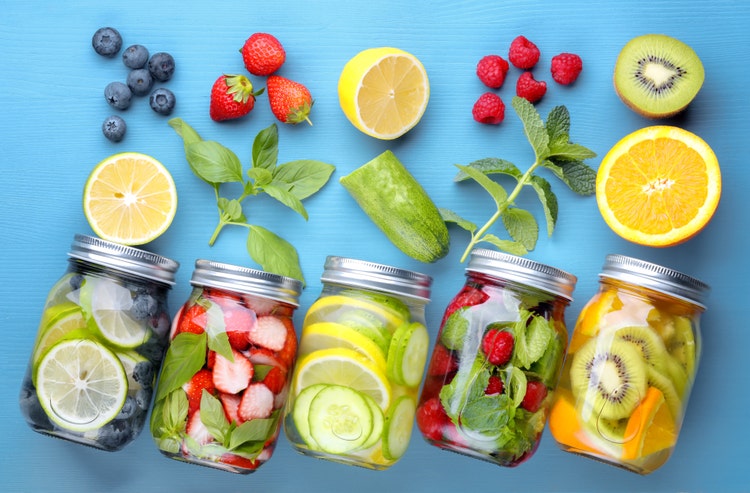H2O Hype

Are fruit and plant waters as healthy as they seem?
We know that when it comes to staying hydrated, water is the best medicine for our bodies. Of course, alternative thirst-quenching options have popped up on the scene in recent years: Coconut water, for example, is an excellent source of potassium and electrolytes, and is ultra-hydrating.
But lately, regular tap water has been replaced by all types of flavored waters. Watermelon water, bamboo water—even artichoke water—tout more nutrients, more health benefits, and just, well, more. So is the flavor fad really all it’s cracked up to be?
In a recent article, Berkeley Wellness—a wellness resource by U.C. Berkeley—researched several types of plant waters sold on supermarket shelves. What they found is that many of the waters that claim to have the benefits of the fruit, vegetable, or plant associated with the name, have no scientific proof to back up those claims. In fact, Berkeley Wellness even discovered that some of the waters (banana water, for example) have nutrients added to the water, while the flavor is added separately. And while the creators of maple water say the beverage boosts the immune system and helps with digestion, there is no evidence that either are a byproduct of maple sap.
So should you forego the bamboo water altogether? Maybe not: If you’re tired of drinking plain old water and looking for something a little more exciting—and less sugary than soda or other popular sports drinks—perhaps plant waters are the way to go. (Hey, if it gets you to drink more water, why not?) Sure, you may not get all the “benefits” written on the bottle’s label, but a low-calorie, low-sugar, water-based drink option is definitely a better choice than a sugary soda.
Either way, for your wallet’s sake, you may want to limit yourself to one drink a week.
Photo credit: fotohunter, Thinkstock